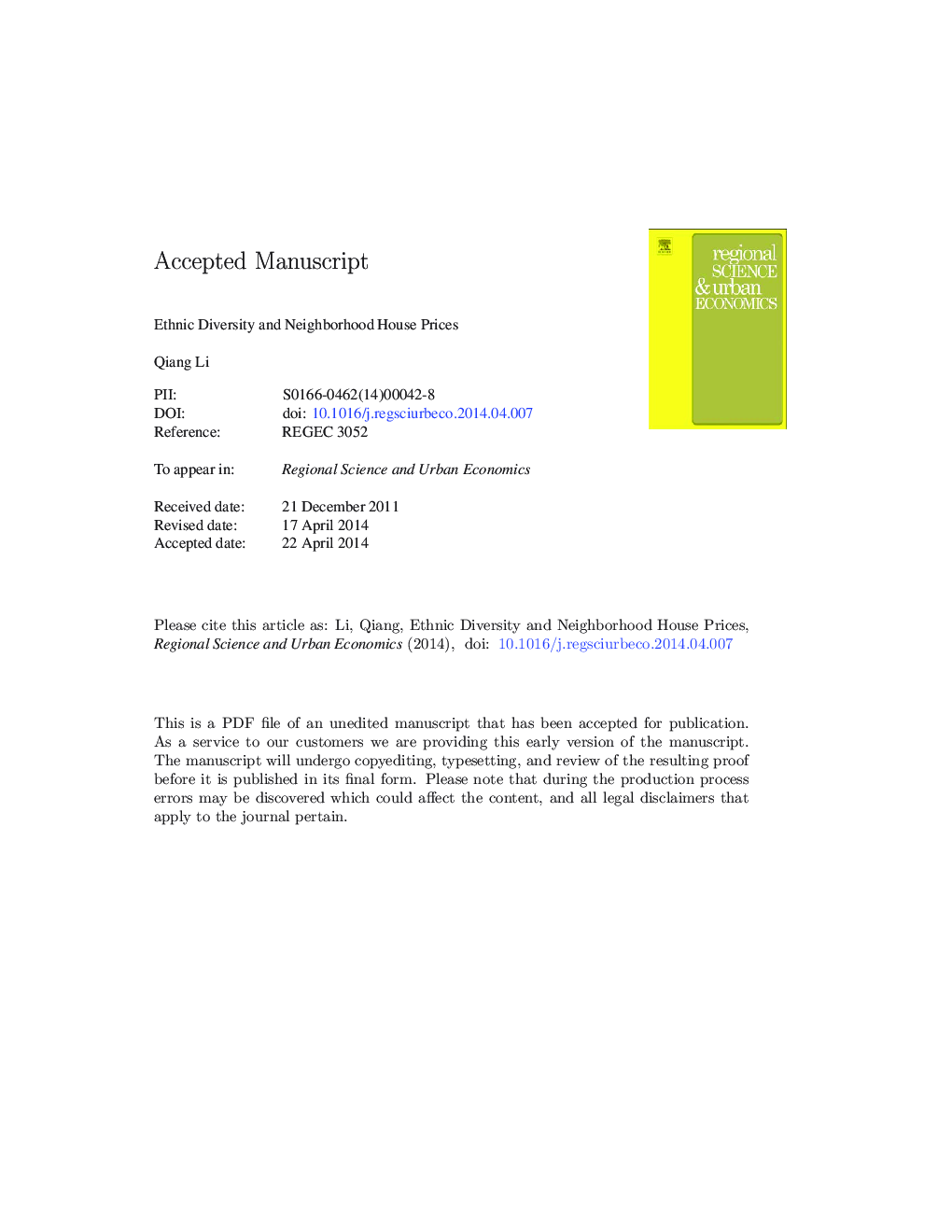| Article ID | Journal | Published Year | Pages | File Type |
|---|---|---|---|---|
| 7383896 | Regional Science and Urban Economics | 2014 | 53 Pages |
Abstract
In recent decades, the large influx of immigrants to the U.S. and other developed countries has made cities in these countries more ethnically diverse. In this paper, I aim to understand whether and how ethnic diversity affects communities in these cities. A general equilibrium model is built in which people of many ethnic groups interact in the housing market through both price signals and non-market mechanisms. An endogenous correlation between neighborhood house price and the Herfindahl index of ethnic concentration arises because of social interactions. After addressing the endogeneity issue, I find that neighborhoods with more homogeneous minority populations command higher prices using a dataset of housing transactions and neighborhood socio-economic characteristics in Vancouver, Canada. This and other findings support the notion that non-market social interactions influence people's preference and behavior.
Keywords
Related Topics
Social Sciences and Humanities
Economics, Econometrics and Finance
Economics and Econometrics
Authors
Qiang Li,
